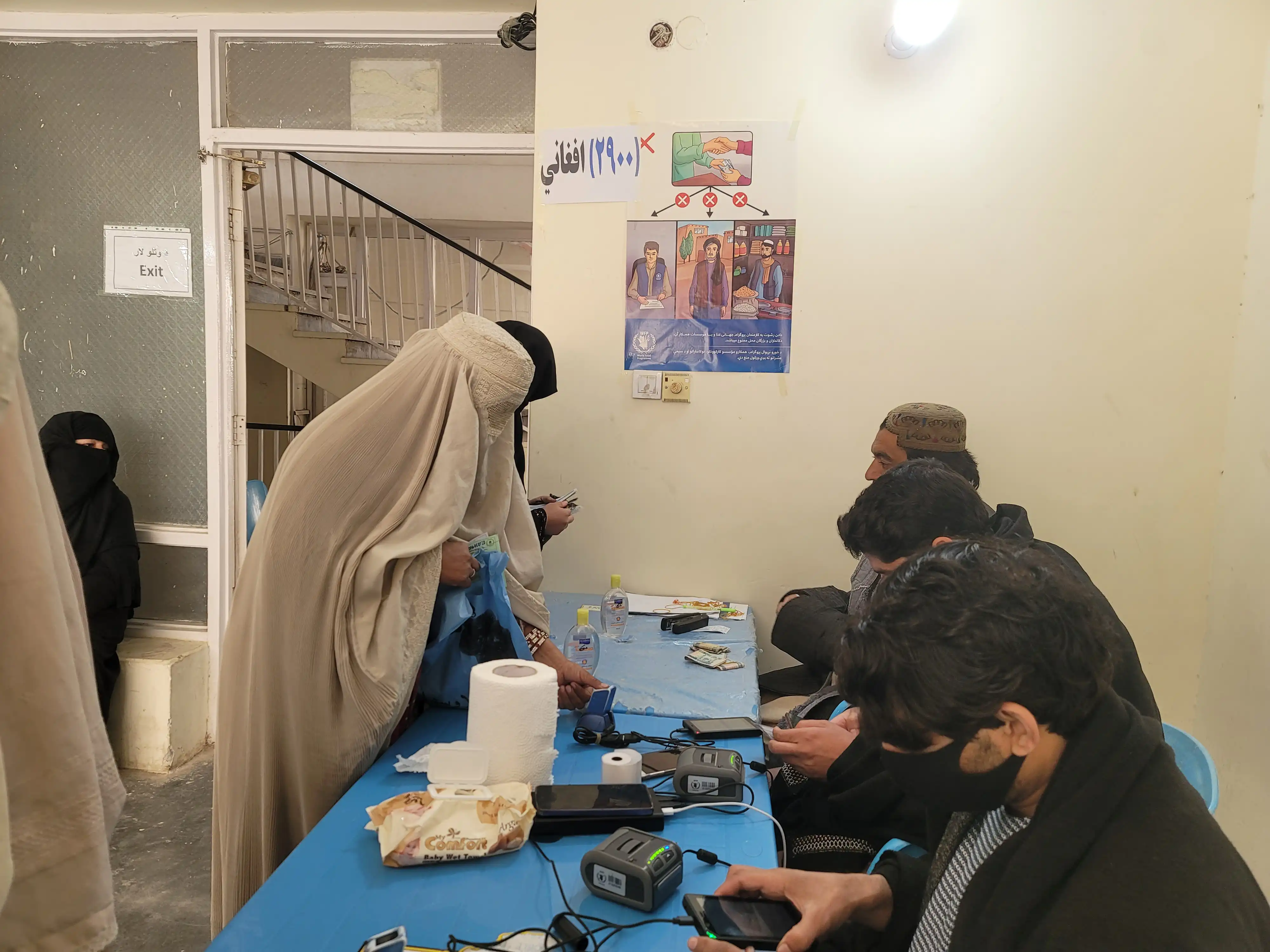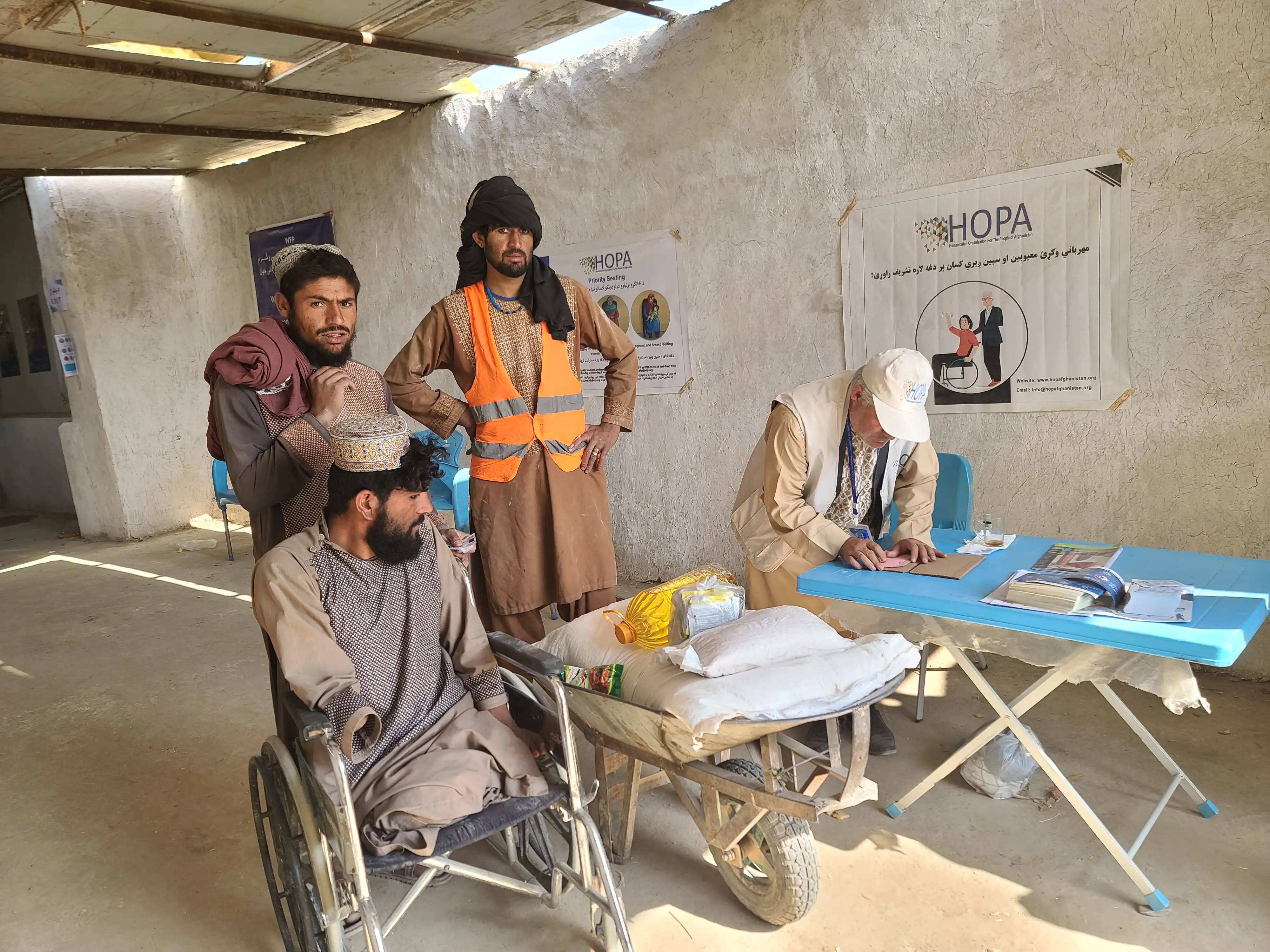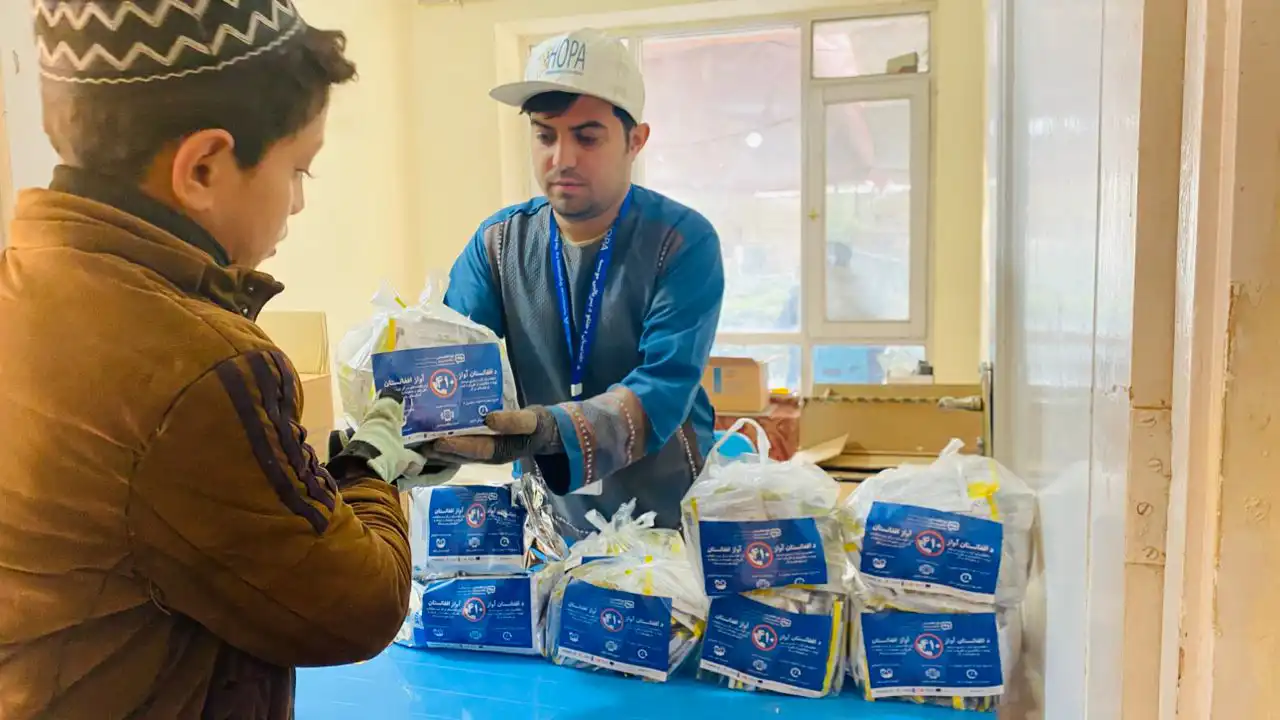Supporting Vulnerable Communities in Kandahar City and Panjwayi

Supporting Vulnerable Communities in Kandahar City and Panjwayi
Kandahar, Afghanistan – In response to the growing humanitarian needs in southern Afghanistan, the Humanitarian Organization for the People of Afghanistan (HOPA), in partnership with the United Nations World Food Programme (UN-WFP), is implementing a large-scale food and cash distribution project under WFP’s Strategic Outcome 1 (SO1) program. This initiative is providing vital assistance to thousands of vulnerable families in Kandahar City and Panjwayi District, ensuring food security and improving livelihoods.

Sustained Humanitarian Support for Thousands of Families
The project, which is currently ongoing, delivers monthly distributions of food packages and cash assistance to at-risk households, preventing hunger and malnutrition among the most vulnerable populations, including children, pregnant women, and breastfeeding mothers.
In Kandahar City, the project follows a Cash-Based Transfer (CBT) model, benefiting 8,488 households (HHs). Each family receives 2,900 AFN per month, allowing them to purchase essential food items of their choice. This approach not only ensures food security but also stimulates the local economy, supporting markets and businesses.

Meanwhile, in Panjwayi District, where access to food markets is more limited, 1,167 households (HHs) receive direct food assistance. Each household is provided with a comprehensive food package containing:
Wheat – A staple food source
Salt – Essential for daily nutrition
Split Peas – A key source of protein
Cooking Oil – A vital ingredient for meal preparation
To address the nutritional needs of children and mothers, the distributions also include Lipid-Based Nutrient Supplements (LNS) and Wheat Soya Blend (WSB). These supplements are crucial in preventing malnutrition and ensuring a balanced diet for growing children and pregnant or breastfeeding women.

Ensuring a Sustainable Impact
The project’s structured monthly distribution cycle ensures that families consistently receive the food and financial assistance they need. By delivering aid every month, HOPA and UN-WFP are preventing food crises and reducing the risks associated with severe food insecurity.
Beyond immediate relief, this initiative is contributing to the long-term resilience of communities by allowing families to plan better, improve their dietary intake, and focus on other essential needs such as education and healthcare.
HOPA’s Commitment to Humanitarian Assistance
HOPA remains steadfast in its mission to support Afghanistan’s most vulnerable populations, ensuring that no family is left without basic food and financial support. This project, made possible by UN-WFP, is a testament to HOPA’s dedication to transparency, fairness, and community-driven solutions in humanitarian assistance.
As the project continues, HOPA will work alongside WFP and local stakeholders to expand access, improve efficiency, and maintain dignity in aid distribution.
Together, we fight hunger. Together, we build resilience.
Project Overview
Related Projects

Food Distribution in Kandahar Province, Afghanistan
The main objective of the Project was to assist the poor people and eradicate the poverty from the selected area of Kandahar Province in preparing and providing the food Distribution Project.

Micro Lending Project in Kandahar Province, Afghanistan
The project is supporting the further development of the microfinance sector in Districts and Center of Kandahar province Afghanistan, through an integrated package of support, including six outputs.

CBT Report for 2024 year second project
To provide immediate lifesaving assistance through Food and Cash, response to the population affected by the economy crisis or disabilities man and women in 4 districts of Kandahar province , in order to reduce and prevent economic crisis and suffering.


